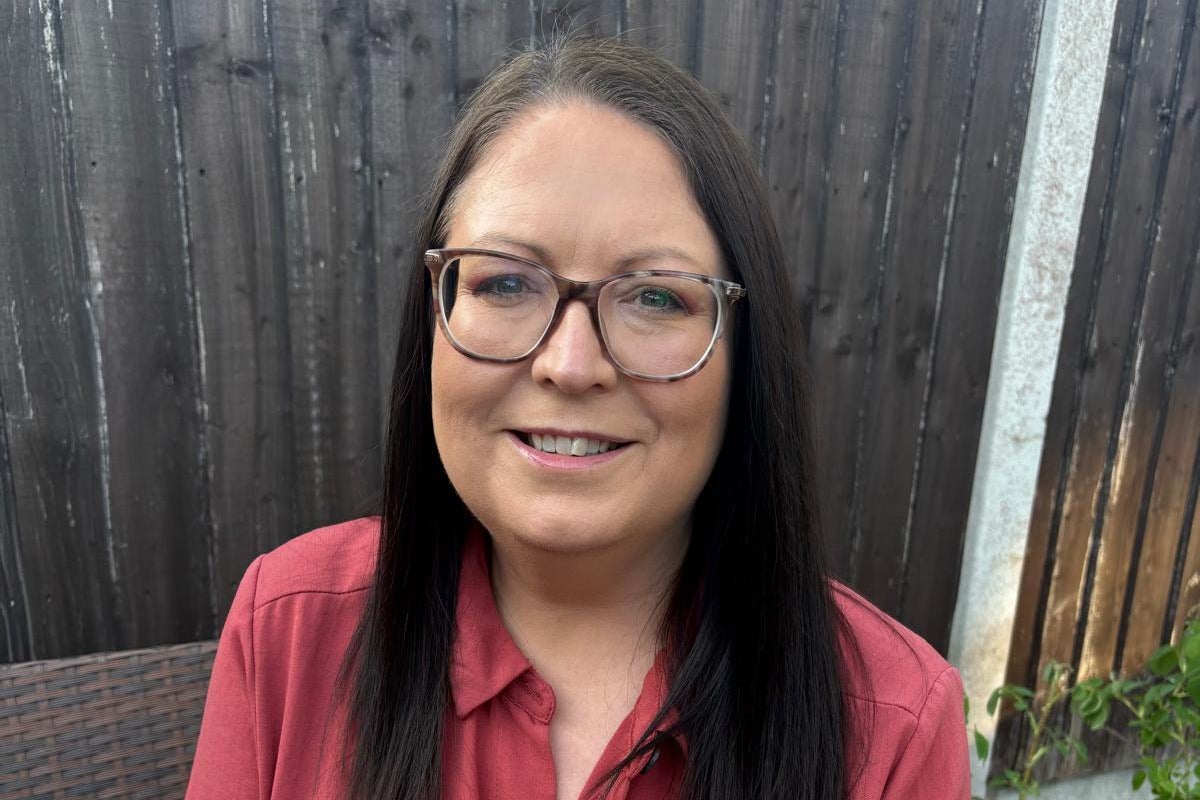Science
AI Skin Cancer Detection Saves Life of Office Manager in UK

When 46-year-old Lynsey Robertson utilized a new AI skin cancer screening tool at her workplace, she became an unexpected patient of the very technology she helped launch. Just hours after testing the system at Buckshaw Village Surgery in Preston, Lancashire, the AI flagged a mole on her skin as high risk, leading to a diagnosis of malignant melanoma, a potentially deadly form of skin cancer.
Lynsey, who serves as an office manager at the surgery, had noticed a patch of skin that had gradually changed color but had largely ignored it. Curious to see how the new technology functioned, she decided to scan the lesion. The system quickly identified it for urgent evaluation, triggering the NHS’s two-week suspected cancer pathway. That same day, a referral was sent to Chorley Hospital.
“I couldn’t believe it,” Lynsey recalled. “I just kept thinking, what if I hadn’t said anything?” Despite having the mole for years without discomfort and dismissing her friends’ concerns, Lynsey had hesitated to consult a doctor, fearing she would be wasting their time.
Following her diagnosis, she underwent a minor surgical procedure to remove the mole, which confirmed the presence of cancerous cells. A subsequent surgery successfully eliminated all traces of the cancer. Lynsey now emphasizes the importance of not ignoring changes in skin or unusual markings, urging others to seek medical advice. “Who knows what could have happened if I hadn’t tested the technology?” she questioned.
Developed by Skin Analytics, the AI system analyzes images of lesions to detect potential signs of skin cancer. According to the company, it boasts an impressive 99.9 percent accuracy rate in ruling out melanoma. Healthcare professionals can capture images of suspicious skin patches using a smartphone equipped with a high-quality magnifying lens. The AI then assesses these images, and any flagged lesions undergo further examination by a dermatologist.
The technology has seen rapid deployment across the UK, having been conditionally approved for three years and assessing over 170,000 NHS patients since its introduction in 2020. While the integration of artificial intelligence in healthcare has sparked discussions about data security and the potential for bias, the UK government has committed to making the NHS the most AI-enabled health system globally.
In a recent statement, Health Secretary Wes Streeting remarked, “The AI revolution is here, and we are arming staff with the latest ground-breaking technology, so patients get faster and smarter care.” He further asserted that this initiative would reinforce the UK’s position as a technology superpower, driving necessary investment and economic growth.
Significantly, this skin cancer screening technology is recognized as the world’s first AI authorized to detect cancer without a physician’s presence, according to Skin Analytics. Polling conducted by the company revealed that 73 percent of respondents believe the NHS has a duty to utilize technologies that demonstrate clear benefits for patients.
The rising incidence of skin cancer in the UK underscores the importance of such innovations. The NHS reports that more than 17,000 people are diagnosed with melanoma annually, with approximately 2,300 fatalities each year. A recent report from Cancer Research highlighted that only half of cancer patients in the UK are diagnosed within the NHS’s target of 28 days. Furthermore, 71 percent of individuals surveyed believe that regulated AI could help reduce NHS wait times.
As Lynsey’s experience demonstrates, the intersection of technology and healthcare can have life-saving implications. With the ongoing integration of AI tools, there is hope for improved early detection and treatment of skin cancer, potentially altering the landscape of patient care in the UK and beyond.
-

 Health3 months ago
Health3 months agoNeurologist Warns Excessive Use of Supplements Can Harm Brain
-

 Health3 months ago
Health3 months agoFiona Phillips’ Husband Shares Heartfelt Update on Her Alzheimer’s Journey
-

 Science2 months ago
Science2 months agoBrian Cox Addresses Claims of Alien Probe in 3I/ATLAS Discovery
-

 Science2 months ago
Science2 months agoNASA Investigates Unusual Comet 3I/ATLAS; New Findings Emerge
-

 Science1 month ago
Science1 month agoScientists Examine 3I/ATLAS: Alien Artifact or Cosmic Oddity?
-

 Entertainment5 months ago
Entertainment5 months agoKerry Katona Discusses Future Baby Plans and Brian McFadden’s Wedding
-

 Science1 month ago
Science1 month agoNASA Investigates Speedy Object 3I/ATLAS, Sparking Speculation
-

 Entertainment4 months ago
Entertainment4 months agoEmmerdale Faces Tension as Dylan and April’s Lives Hang in the Balance
-

 World3 months ago
World3 months agoCole Palmer’s Cryptic Message to Kobbie Mainoo Following Loan Talks
-

 Science1 month ago
Science1 month agoNASA Scientists Explore Origins of 3I/ATLAS, a Fast-Moving Visitor
-

 Entertainment2 months ago
Entertainment2 months agoLewis Cope Addresses Accusations of Dance Training Advantage
-

 Entertainment3 months ago
Entertainment3 months agoMajor Cast Changes at Coronation Street: Exits and Returns in 2025









